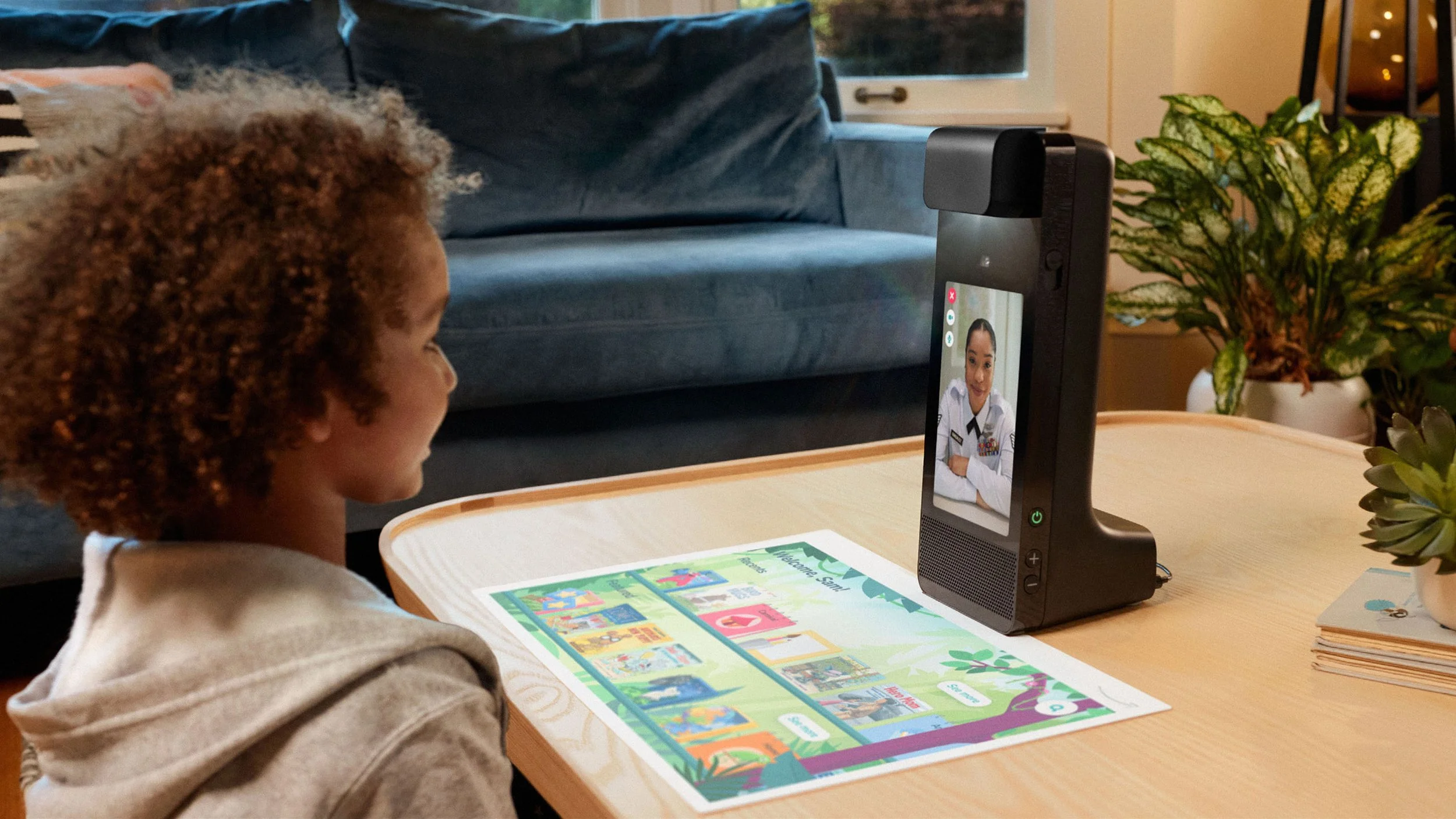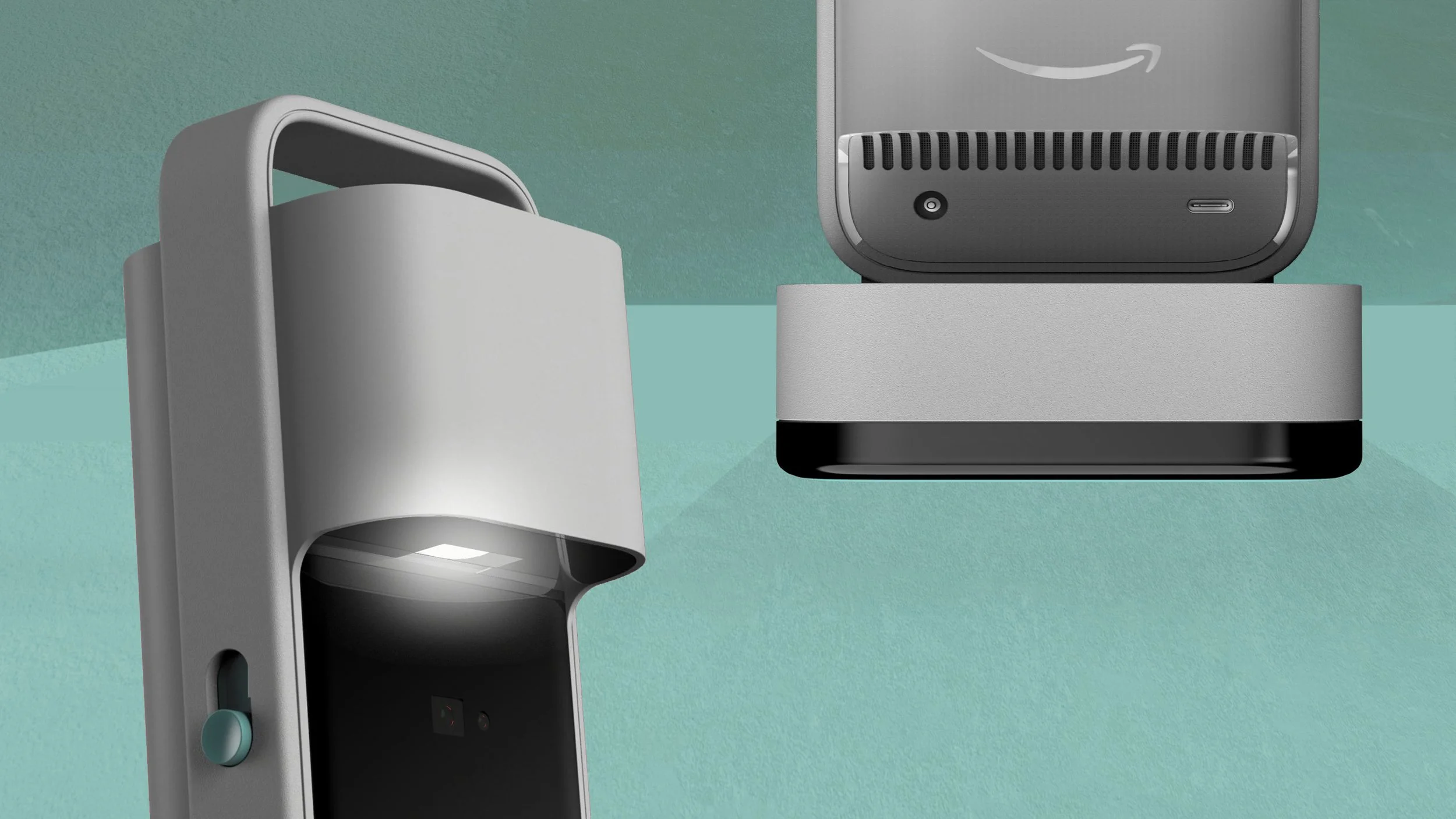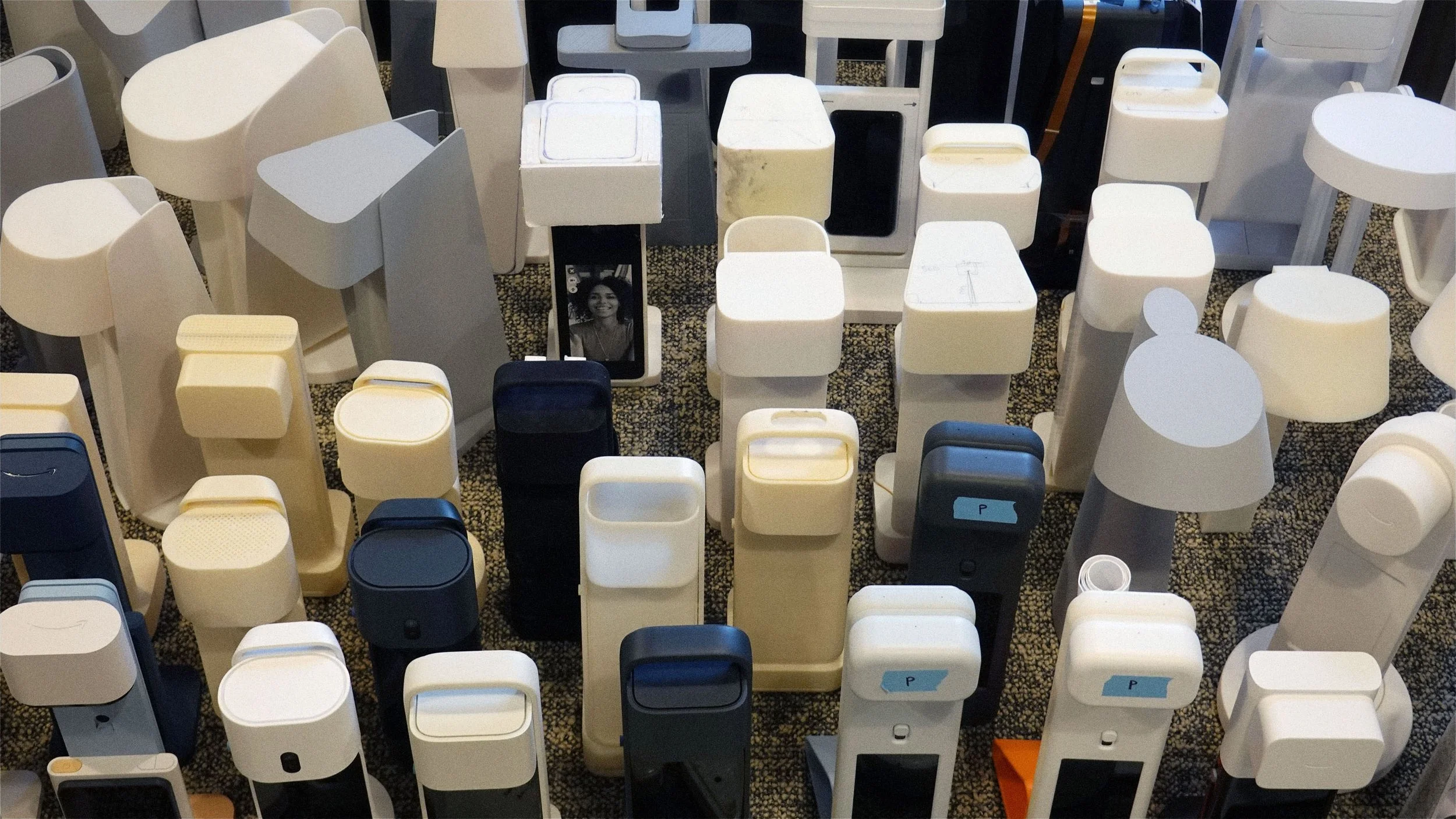Amazon Glow was an interactive projector designed to create more meaningful connections between children and their remote loved ones. Focused on shared activities, including learning, play and creative endeavors, Glow delivered a unique experience within a walled garden of content and experiences.
The first generation Amazon Glow was incubated in Amazon’s Grand Challenge, and in it’s EVT phase when I joined – upon launching in October 2022, Glow received and maintained the highest star rating on Amazon.com for any first generation Amazon product (this rating has since dropped after the device was discontinued).
Even prior to the V1 Glow’s launch, I began work on the V2 device. The design exploration emphasized in-home mobility and optimized sizing. These and other tenets informed by customer research and reviews were developed and used to help communicate and align on ID with leadership and other stakeholders.
The 2nd generation device was designed to take significant cost out of the product while maintaining a parity experience. This was accomplished by maintaining the 20” playspace while reducing the scale of the rest of the product as well as through cost efficiencies in other areas of the BOM (SoC, cameras, etc). The form ultimately refined many of the elements found in the first generation device and addressed significant pain points around portability, storage and handling.
The new ID also preserved Glow’s purposeful ‘device’ strategy – an approach informed by research that reinforced a CE/tech expression rather than a toylike one.The updated ID sought to balance this approach with more playfulness and character – Inflated surfaces and softer rounds are used on high touch areas such as around the touchscreen while precise geometry and crisp edges re used on low-touch areas.
One simple improvement was the decision to inset power and accessories connectors eliminating the additional protrusion of the connector overmold from the products total depth when in use. This approach also lent itself well to a more cost optimized construction.
The updated ID also addressed a pain point found in the first generation product – playmat storage. Several directions were explored including magnetic ones, however a low tech fabric loop in combination with the platform-like base was ultimately opted for.
Touchpoints were reconsidered and included the addition of differentiated surfaces (concave/convex/flat) to help guide use by touch alone.
Touchpoints were reconsidered and included the addition of differentiated surfaces (concave/convex/flat) to help guide use by touch alone.
While working closely with engineering and other stakeholders to finalize the ID, the V2 concept was approved for production through Amazon’s ID Intent Lock stage prior to the programs disbandment.
In addition to this ID, numerous other concepts (including very different interaction paradigms) were explored. Despite being fanatically well -received by consumers, the business case for Glow proved more difficult, and after less than a year on the market Amazon made the decision to cancel the program and disband the team.











